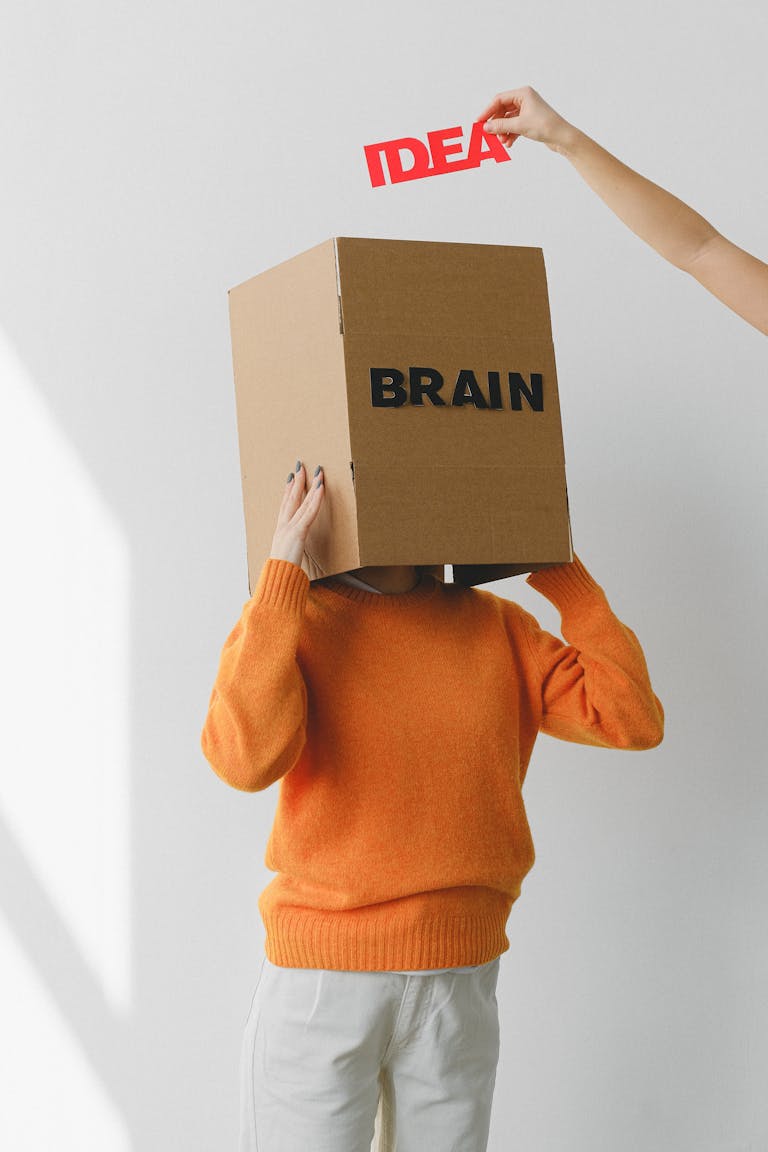The Power of Habit: How to Build Healthy Routines for Mental Health
Developing healthy habits has a profound impact on one’s physical and mental well-being. Routines provide life structure, lower stress levels, and lay the foundation for personal development. Establishing healthy routines can have an important impact in the field of mental health, where stability and consistency often seem difficult. Psychology research emphasizes how habit can help manage mental health issues like depression, anxiety, and even cognitive decline. The importance of routines, how habits are formed, and useful strategies for implementing healthy habits into daily life are all covered in this article on how to use habits to promote mental health.

Understanding the Power of Habit in Mental Health
According to the theory of habit formation, which was initially studied by behavioural psychology, habits are automatic responses to specific environmental signals (Duhigg, 2012). We can develop routines that promote mental health and decrease our reliance on inconsistent motivation by utilizing this automaticity. Regular mental health practices including journaling, exercise, and mindfulness have been shown to enhance mood and reduce stress. People create a foundation that they can depend on when faced with obstacles in life by incorporating healthy routines (Wood & Neal, 2016).
8 Healthy Routines for Mental Health
1. The Science of Habit Formation
Habit formation relies on a loop consisting of a cue, routine, and reward, a structure that Charles Duhigg popularized in The Power of Habit. According to this model, habits build through consistent repetition, forming a stable structure in our minds (Duhigg, 2012). Recent studies on habit formation show that routines help with both memory retention and emotional regulation by creating predictable neural pathways in the brain (Verplanken, 2018). This consistency supports cognitive functions, reduces the impact of stress, and can even reduce symptoms of anxiety.
Tip: Start with one habit at a time, choosing something manageable and aligning with personal goals, such as a short morning meditation. Building one solid habit is often more effective than trying to establish multiple habits at once.
2. Creating Positive Morning Routines
Mornings offer an opportunity to set a positive tone for the day. Simple routines, such as stretching, practicing gratitude, or spending a few minutes journaling, can reinforce feelings of stability. A study found that individuals with structured morning routines reported reduced stress levels and higher productivity, which positively influenced mental health throughout the day (Fogg, 2019).
Example Habit: Incorporate a quick exercise session or breathing exercises to energize your mind and body. These habits encourage mindfulness, providing focus and reducing the mental clutter that can contribute to anxiety.
3. Incorporating Movement
Physical activity is widely recognized for its role in mental health maintenance. Exercise releases endorphins, which act as natural mood stabilizers, and studies show that consistent movement enhances resilience to stress (Ratey & Loehr, 2011). A study by the American Psychological Association (2016) found that participants who engaged in regular physical activities experienced reduced symptoms of depression and anxiety, as well as improved self-esteem.
Building the Habit: Aim to incorporate movement in daily life by choosing an activity you enjoy. Whether it’s a 10-minute walk, a dance break, or light stretching, the focus should be on consistency rather than intensity.
4. Practicing Mindfulness and Meditation
Mindfulness routines provide a foundation for resilience, helping people manage negative thoughts by fostering presence in the moment. Mindfulness-based interventions (MBIs) have been extensively studied, with research indicating a strong positive impact on mental health outcomes. A study by Creswell (2019) found that individuals who practiced mindfulness meditation daily reported lower stress levels and improved emotional regulation.
Routine Recommendation: Start with short, guided meditation sessions, gradually increasing their length. Over time, these sessions will become a natural part of your day, offering moments of peace and self-connection.
5. Cultivating Gratitude
Research indicates that gratitude practices can help shift focus from negative to positive experiences, enhancing emotional resilience. A study by Emmons and Mishra found that regular gratitude practice correlated with increased life satisfaction, reduced stress, and improved mood stability (Emmons & Mishra, 2020). By consciously reflecting on positive aspects of life, even during challenging times, individuals can reframe their mindset toward optimism.
Building the Habit: Write down three things you are grateful for each evening. This habit takes only a few minutes, yet it encourages a perspective shift that positively influences mental health.
6. Engaging in Creative Expression
Creative outlets like painting, journaling, or playing an instrument have been shown to reduce stress and support cognitive function. Engaging in creative activities activates the brain’s reward systems, promoting feelings of relaxation and fulfillment. A study found that art therapy could significantly alleviate symptoms of depression and anxiety, offering a non-verbal way to process emotions (Kaimal et al., 2017).
Tip: Set aside time each week for a creative activity. The focus here is not on the quality of the work but rather on the act of creation, which provides a sense of purpose and relaxation.
7. Prioritising Sleep Hygiene
Sleep and mental health are closely interconnected, with poor sleep quality often exacerbating symptoms of anxiety and depression. Sleep hygiene, which involves practices that promote restful sleep, is essential for cognitive functioning and emotional balance. A study found that individuals who adhered to a sleep routine had significantly lower levels of anxiety and reported better mood regulation (Harvey et al., 2016).
Building the Habit: Create a bedtime routine that includes winding down at least an hour before bed, limiting screen time, and relaxing with a book or light stretching. This consistency signals to your body that it’s time for rest, promoting better sleep quality.
8. Building Connections with Supportive Relationships
Human connection is a cornerstone of mental health. Building and maintaining supportive relationships enhances our sense of belonging, provides emotional support, and reduces feelings of isolation. A study on social relationships found that strong support networks act as a buffer against stress and contribute to mental resilience (Ozbay et al., 2017).
Routine Suggestion: Schedule regular catch-ups with friends or family, either in person or virtually. Prioritizing these connections in a busy schedule fosters support, connection, and positive emotional experiences.
Understanding Habit Formation and Mental Health
At first, developing healthy habits might seem difficult, but the benefits outweigh the challenges involved. Habits provide stability, which facilitates navigating every aspect of life. Every positive habit turns into a small commitment to mental health, which adds up over time to provide a solid basis for growth and resilience. According to research, our everyday decisions have a big impact on our mental health, and it is not just a result of our circumstances.
Conclusion
Building habits that support mental health is a gradual process, requiring intention and patience. From mindfulness practices to creative outlets and consistent physical activity, these routines can profoundly impact well-being. As you cultivate these habits, each step builds upon the last, strengthening your ability to manage stress, find joy, and foster a balanced mind. In the journey to mental well-being, the power of habit proves a reliable companion, allowing you to approach each day with resilience and optimism.
References
Creswell, J. D. (2019). Mindfulness Interventions and Psychological Well-being: A Review. Annual Review of Psychology, 70, 491–516.
Duhigg, C. (2012). The Power of Habit: Why We Do What We Do in Life and Business. Random House.
Emmons, R. A., & Mishra, A. (2020). The Role of Gratitude in Mental Health. Journal of Positive Psychology, 15(5), 499–510.
Fogg, B. J. (2019). Tiny Habits: The Small Changes That Change Everything. Houghton Mifflin Harcourt.
Harvey, A. G., et al. (2016). Sleep Disturbances and Mental Health in Adults. Sleep Medicine Reviews, 27, 25–35.
Kaimal, G., et al. (2017). Art Therapy for Mental Health Outcomes. Journal of the American Art Therapy Association, 34(3), 132–140.
Ozbay, F., et al. (2017). Social Support and Resilience to Stress. Psychiatry, 16(3), 35-42.
Ratey, J., & Loehr, J. (2011). The Positive Impact of Physical Activity on Mental Health. American Journal of Psychiatry, 168(12), 1316-1324.
Verplanken, B. (2018). Habit Formation and Its Impact on Mental Health. Journal of Behavioral Science, 10(4), 302-315.
Wood, W., & Neal, D. T. (2016). Habit Formation and Change. Annual Review of Psychology, 67, 489–510.







